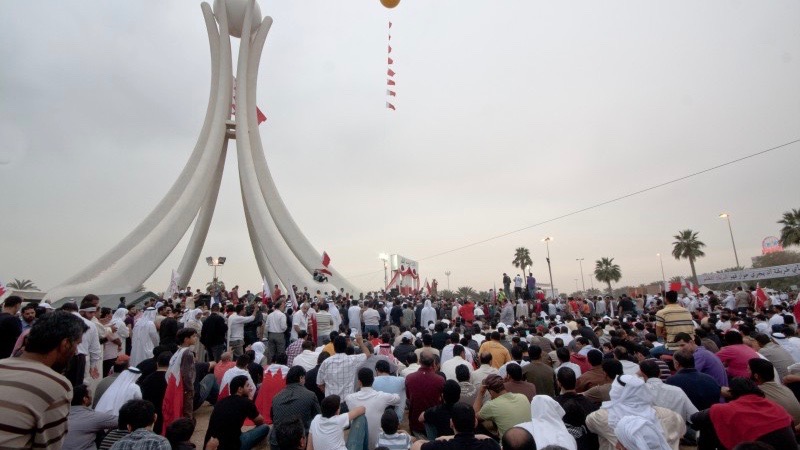Citing Bahrain’s abysmal record on human rights and its brutal crackdown on internal dissent, a group of international human rights organizations have called on the US government to restrict its arms sales to the Gulf monarchy. In a letter addressed to US secretary of state Antony Blinken, the 15 signatory organizations ask the US to take measures to pressure the Bahraini government to improve the human rights situation in the country, Middle East Eye reported on Thursday, March 4.
Signatories to the letter include organizations like Amnesty International, Bahrain Institute for Rights and Democracy (BIRD), Reprieve, World Organization Against Torture, Freedom House, Committee to Protect Journalists (CPJ) and Democracy for the Arab World (DAWN). The letter asks the Joe Biden administration to “urge Bahrain to rescind restrictions on civil society, take genuine steps towards justice reform and the restoration of civil rights and reinstate restrictions on arms sales to Bahrain pending an improvement in the country’s rights record.”
The organizations express alarm over Bahrain’s extensive “use of torture and other ill-treatment” in its sweeping crackdown on human rights activists, opposition figures, pro-democracy activists and leaders of the 2011 uprising against the monarchy, which were violently crushed with the help of Saudi military troops.
The letter notes that Bahrain, like other Gulf allies of the US, was given a free rein under the previous US administration of Donald Trump to commit human rights abuses and crush all dissent. This is while the US attempted to forge deeper ties with these countries, especially in the sphere of military sales. The Trump administration signed arms deals worth USD 8.5 billion with Bahrain and the UAE. The two countries also signed the US-brokered Abraham Accords to normalize relations with Israel. Bahrain thus became one of the few countries in the Arab world to recognize Israel despite no end to the Israeli occupation of Palestine and the non-fulfilment of the establishment of a Palestinian state according to pre-1967 borders. Many analysts believe that the deal contributed to Bahrain receiving preferential treatment from the US with respect to arms sales and explains US silence and on the authoritarian regime’s human rights abuses.
In the letter, the organizations highlight that the Trump administration only emboldened Bahrain and other countries in the region with poor human rights records. Meanwhile, the massive arms sales to the region has yielded enormous commercial profits for the US weapons industry.
Bahrain’s repression of human and civil rights through a systematic, multi-pronged crackdown on pro-democracy activists has been widely criticized internationally. The government is accused of using the 2011 uprising as a pretext to target opposition parties, minority communities and independent journalists who are critical of the regime. The letter talks about the arbitrary, extrajudicial detention of several Bahraini human rights activists such as Abdulhadi al-Khawaja, Nabeel Rajab and Ebtisam al-Saegh. In July 2016, the main opposition party, Al-Wefaq, was banned over allegations of harboring terrorism. The secular Al-Waad party was ordered to be dissolved in 2017.
A recent commemorative report released by BIRD to mark the 10-year anniversary of the 2011 uprising stated that “within days of the first protests, the rulers of Bahrain responded with unrestrained repression, the brutality and scale of which was unprecedented in Bahrain’s modern history.” It also revealed that at least 51 people were sentenced to death in Bahrain since 2011. Several opposition figures and leaders of the 2011 uprising are still being held in prison. BIRD director Sayed Ahmed Alwadaei in a statement warned that “Until US policy in Bahrain focuses on resolving the consequences of 2011 and pushing for democratic reform, the political crisis in the country will remain unresolved.”





